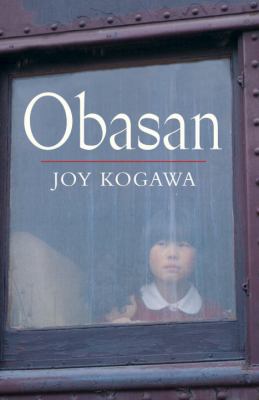obasan-by-joy-kogawa
About the book
Author: Kogawa, Joy
Title: Obasan.
Publication: Toronto : Lester & Orpen Dennys, 1981. ISBN 0-919630-42-1.
DAISY audio format narrated by the author. CELA library call number DA03222. 250 pages in the paper edition; 8 hrs., 51 mins. as a recorded book.
About the story
Beautifully read by the author, Obasan tells the story of the internment of Japanese-Canadians during the Second World War.
Her narrator, Naomi Nakane (pronounced na-kaan-neh), is a middle-aged schoolteacher on the Canadian prairies at the time the story opens. Learning of the death of her uncle, she returns to the home of her Obasan (aunt), where she is surrounded by memories of the past. With the help of a box of documents from her aunt Emily, Naomi slowly reconstructs the past: the separations, the loss of home and community, the love for her family, the loss of her parents, the devastating silence. She discovers, for the first time, what really happened to her family.
This story is beautifully written, with many Japanese words explained (and fluently read by the author). The story it tells is important, because too often Canadians forget the dark chapters of our history. The treatment of Canadians of Japanese origin during WWII is a very, very dark chapter.
Listening to the author tell her story of how one family was torn apart, lost their home, lost family members to impersonal and uncaring bureaucracy, amidst the casual racism of white Canadians who did nothing to help is at times difficult. The unendurable conditions, endured with stoic politeness, fill the reader with both admiration for their strength and shame at how they were treated. The enduring effects on their family is a pervasive atmosphere throughout the book.
Kogawa went on to write poetry and a non-fiction work (Gently to Nagasaki, DA52442). Of her other novels, CELA has only Itsuka, DA12414. She has also written two children’s books, Naomi’s Road, and Naomi’s tree.
She is a member of the Order of Canada.
Recommended?
Highly recommended.
I read this book when I was a kid in high school: it is unforgettable. I read it again now, as a much older person. Both times, it was devastating.
I do think every Canadian should read this book, and acknowledge the hurt we inflict so easily on those we deem as The Other.
